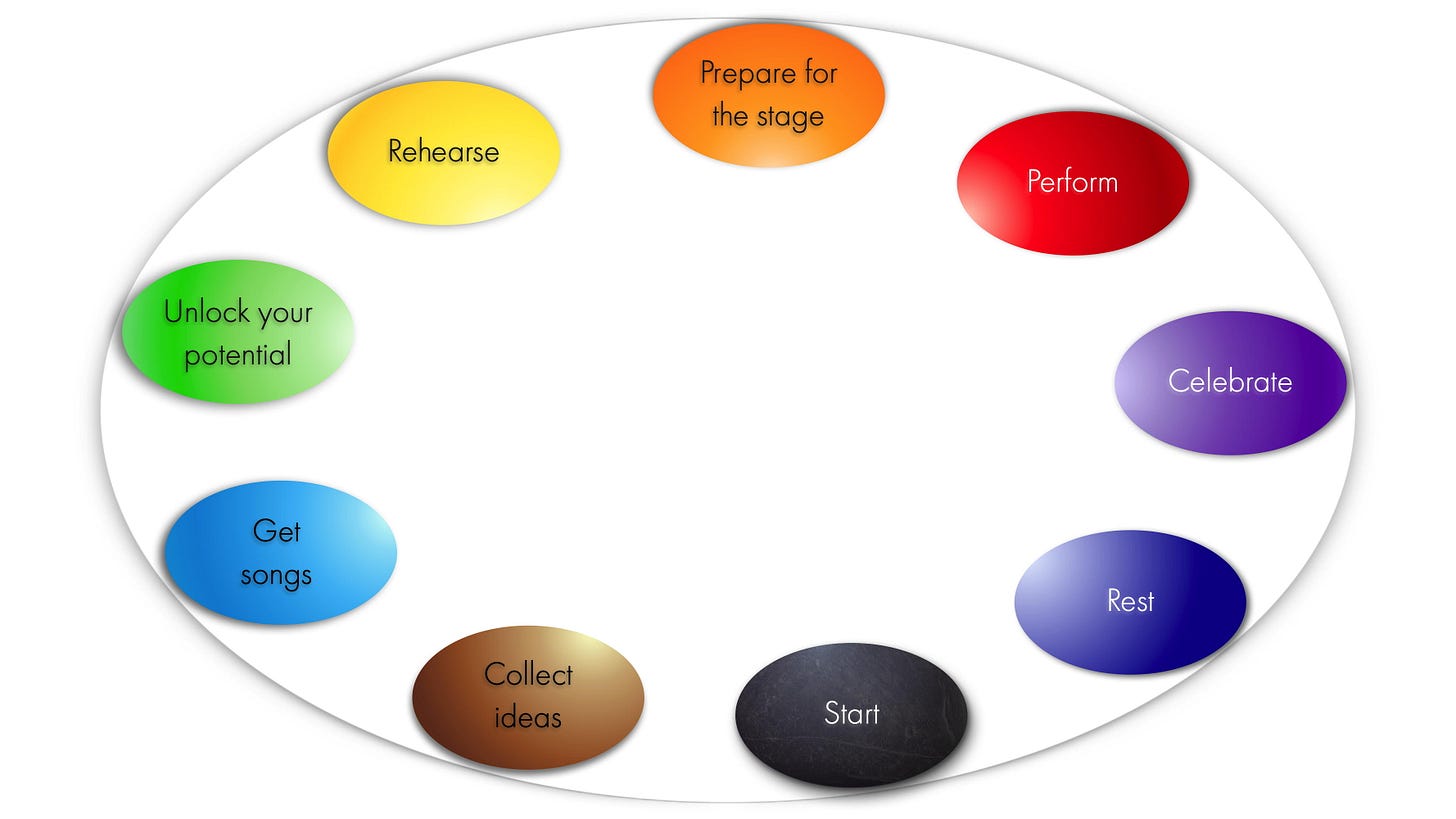The Choral Wheel
The Choral Wheel gives you an overview of a typical development cycle of choirs and vocal groups.
“We shall not cease from exploration,
And the end of all our exploring will be to arrive where we started
And know the place for the first time.”
– T S Eliot
Map #1 – The Choral Wheel
The main purpose of this map is to provide singers and leaders with a common reference to the interconnection between different types of activity within your choir.
Cyclic processes
Start - Collect ideas - Get songs - Unlock your potential - Rehearse - Prepare for the stage - Perform - Celebrate - Rest - Start… and so forth
When you have completed a full cycle of activities, then you return to a new starting point, from where the next project can begin to take shape.
One round through a wheel like this can take two months, five minutes, two weeks, or twenty years, for example.
There is no end station in the Choral Wheel.
Start
What do singers commit to when they join a vocal group or choir? Which types of activity do they think that they are signing up for? And what do they actually sign up for, in reality?
What is required of each choir member to ensure that the choir’s activities are sustainable over time?
Is it only the choir leader’s responsibility to have an overview of the group’s activities? Or do the singers share some of that responsibility?
It may take several turns around the choral wheel before a new singer begins to see their part in what it takes to run the choir.
From ideas to performance
It does happen that we get lost in details, doesn’t it? At times, we all need to zoom out from our current activity and take a look at the whole picture.
In each part of your preparations for performance – Collect ideas, Get songs, Unlock your potential, Rehearse, and Prepare for the stage – you will be expected to give your attention to a wide range of things. Some of these activities may seem unnecessary, unless you have a sense of the whole plan. That’s when understanding of development cycles may come in handy.
Celebrate
How do you collect experiences and lessons learned during the current project, to be assimilated into the collective knowledge of your choir?
After a concert, for example, it is important to celebrate the accomplishments of the whole group, including the preparations leading up to the concert.
A piece of advice: Give yourselves time together to share personal and collective experiences made during the whole project while the preparations and your concert are still fresh in your memory:
– What did we do?
– What did we learn?
– What did we know already?
To collect learning from your current project, questions like these are important to ask oneself, and to discuss together. That way, your experiences can be brought into the next cycle, in ongoing development processes.
Rest
It has been said that music is silence, occasionally interrupted by sound.
Rest is one of the most important parts of creative processes. It is a natural part of life; a state of being.
Many of us are trained to produce, then to evaluate, then to produce again.
When do you set time aside to do nothing?
Have fun, good luck!
Download PDF

